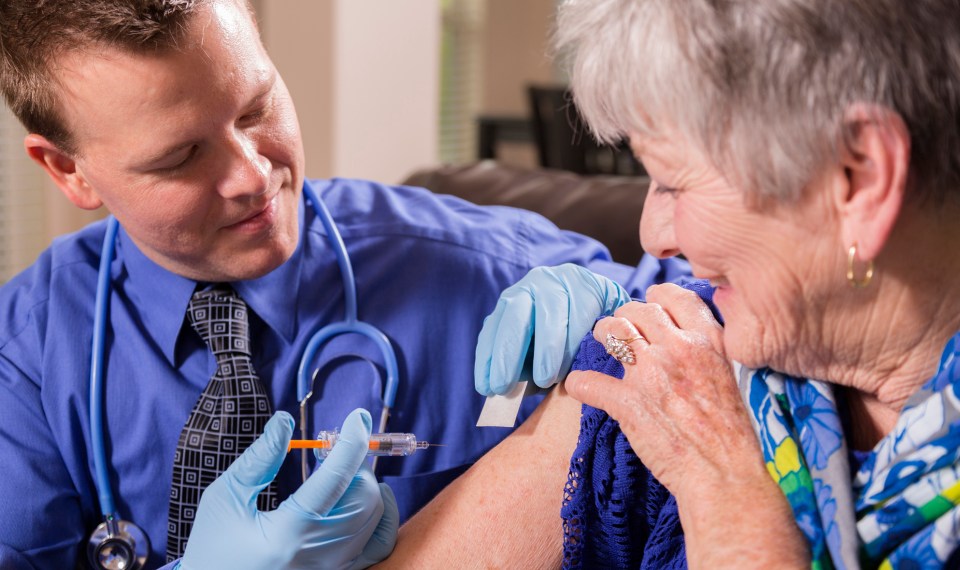Decades of scientific research has shown that a vaccine is one of the most effective preventative technologies against an infectious disease, helping to prevent serious long-term health problems or death. Immunizations help your body develop defense mechanisms in order to achieve immunity without getting sick.
Whether you are an aging adult or a parent of young children, you may be curious about what vaccines are right for your family. Check out the guidance below to find out which ones are recommended by the CDC for various stages of life.
Birth-6 months
Vaccination helps give infants and toddlers a healthy start. For this age group, the CDC recommends HepB (Hepatitis B), RV (Rotavirus), DTaP (Diphtheria, Tetanus and Pertussis), Hib (Haemophilus influenzae type b), and the PCV13 (Pneumococcal) vaccine.
6-24 months
For this age group, the CDC recommends HepA, HepB, DTaP, Hib, PCV13, MMR (measles, mumps and rubella), and the Varicella (chicken pox) vaccine.
3-10 years
The CDC advises that children ages 4-6 should receive the chickenpox vaccine, the MMR vaccine and the DTaP vaccine. You may need a certificate of immunization to enroll your child in school, so be sure to inquire about required vaccinations for your school district.
11-18 years
Preteens and teens need additional vaccines to extend protection. 11-12 year old youth should get one shot of Tdap. They also need a two-shot series of HPV vaccine. (A third shot is needed for those with weakened immune systems.) Children 11-12 years old should get one shot of the meningococcal conjugate (MenACWY) vaccine and receive a booster shot at age 16. Teens 16-18 years old may also receive a MenB (serogroup B meningococcal) vaccine. If your child travels outside of the United States, they may need additional vaccines to protect from diseases such as yellow fever and malaria.
18+ years
Some people think vaccinations are just for kids, but that couldn’t be farther from the truth. Adults need vaccinations, too! Adults need a Tdap vaccine every 10 years. Healthy adults 50 years and older should also get the shingles vaccine. Based on your specific health conditions and lifestyle—including your career and travel habits—other vaccines may be needed.
Vaccinating against the flu
Perhaps the most well-known vaccine is the flu shot. Because influenza viruses are constantly changing and the body’s immune response to the flu declines over time, everyone over the age of 6 months old needs a flu shot every year. The vaccine usually becomes available in late August or early September. Getting the vaccine early can help prevent you and your family members from getting the flu throughout all of flu season.
Vaccinating against COVID-19
As of May 2023, the CDC recommends a COVID-19 vaccination for everyone age six months and older in the United States. Even if previously vaccinated with monovalent vaccines, the recommendation is to receive at least one dose of the newer bi-valent mRNA COVID-19 vaccine. Dosing guidance varies by age, previous COVID-19 vaccines received and the presence of moderate or severe immune compromise. Learn more from the CDC.
Don’t know where you or your child can receive a COVID-19 vaccine? Search vaccines.gov or call 1-800-232-0233 to find locations near you.
The content of this site is for informational purposes only and should not be taken as professional medical advice. Always seek the advice of your physician or other qualified healthcare provider with any questions you may have regarding any medical conditions or treatments.



